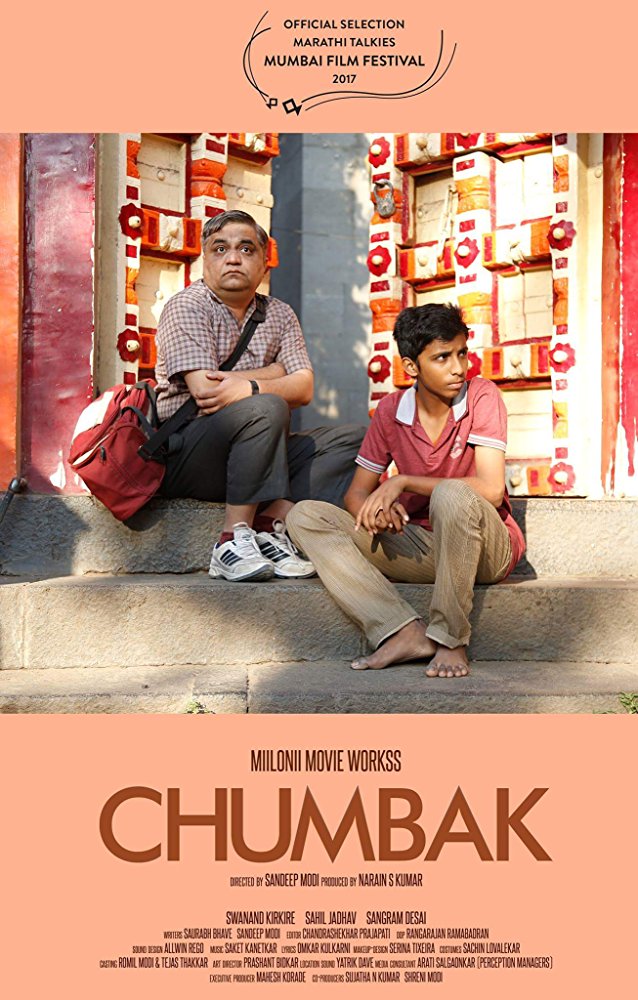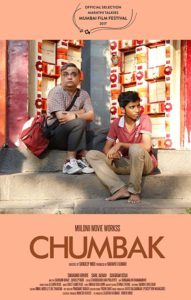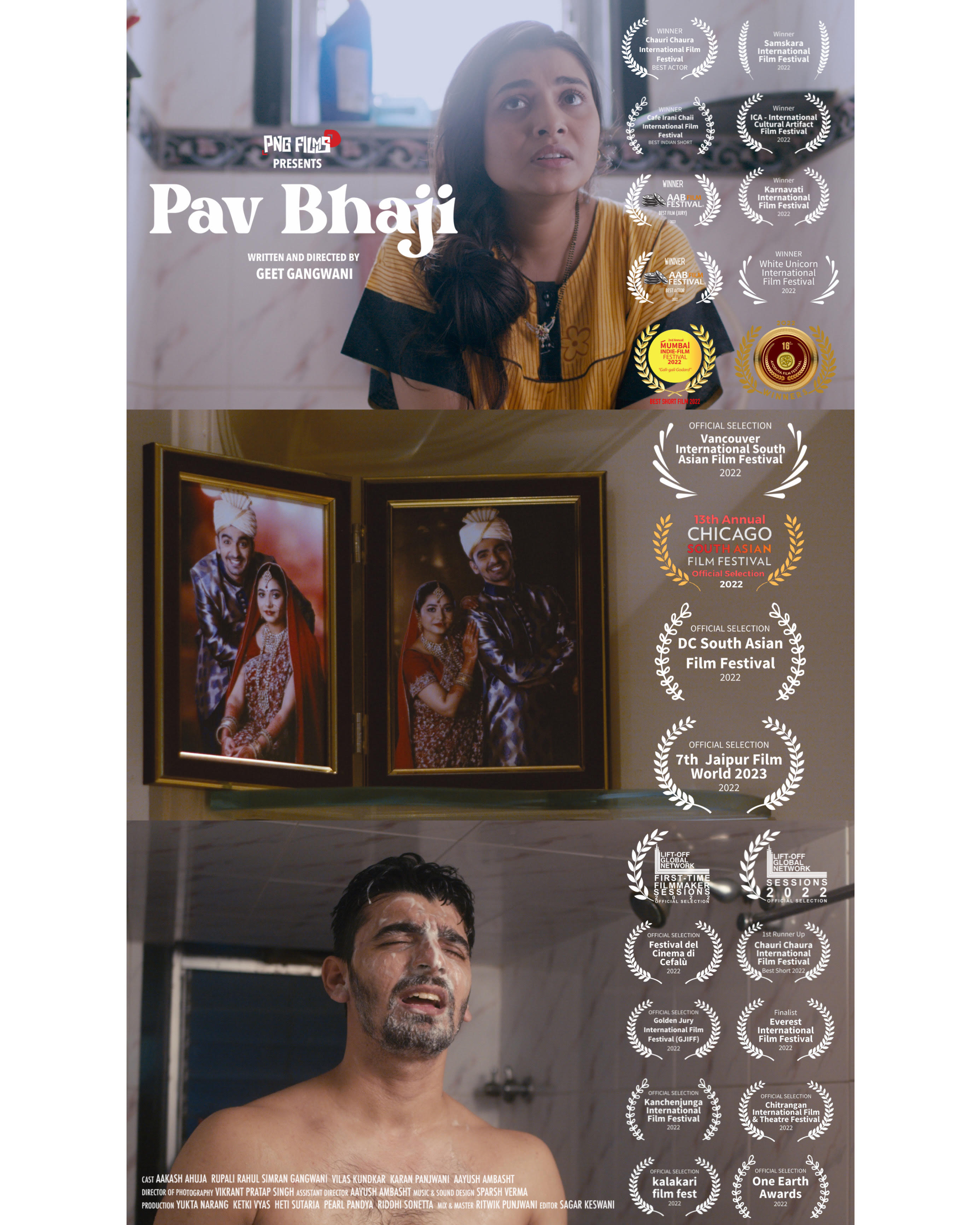
DFW SAFF 2018 Film Review “Chumbak”
NO TRAILER CURRENTLY AVAILABLE
First, the Recap:
The question of morality. We take a look around us in this contemporary age and see how so many choices that could have been made for the good of others end up only being chosen for the benefit of self instead? Upon encountering such circumstances in our own lives, this same decision looms before us. So, the question is posed–which path would you take? In the bustling city of Mumbai, 15-year old Baalu (Sahil Jadhav) works as a waiter/table cleaner for a local eatery. His real ambition, however, is to open his own sugarcane juice stand in his home village, where a new public bus stand is being opened. The only rub–the required money to start it up.
Initially having some inroads financially that come crashing down, Baalu finds himself in desperation and running low on hope. His best friend, the street-smart hustler Dhananjay (Sangram Desai), aka “Disco”, convinces Baalu to go in with him on the now infamous “Nigerian SMS Scam” in order to gain the funds needed. Of course, only one person actually ends up responding to the bait–a poor, mentally slow villager named Prasanna (Swanand Kirkire). Once truly realizing the state of mind Prasanna is in, Baalu begins to balk at any notion of he and Disco defrauding him, much to Disco’s consternation, as he sees it being such an easy score. Soon, however, Baalu is on an adventure involving self-assessment, coming-of-age, and learning what truly matters to him–success or his conscious.
Next, my Mind:
Enjoying its international debut at DFW SAFF 2018, this 118-minute indie feature film from writer/director Sandeep Modi and writer Saurabh Bhave definitively entertains with its beautifully crafted wit, engaging drama, and grounded realism while being yet another film to offer a deeply pertinent and applicable message about the power of one’s convicted conscious vs. greed-based ambition. Now, this isn’t to say ambition in itself is bad, but rather that the narrative simply chooses to so effectively illustrate how pursuing it in less than admirable ways, where others would be hurt in attaining it, should be reconsidered and thought out as is the case for Baalu. This tension is what gives the film its teeth, presenting its moral quandary as a true inner battle Baalu is facing, even as other outside factors (aka: Disco) weigh down on him to just make the easy money and not worry at all about how it will so negatively impact anyone else. The dynamics of this turmoil are further explored through Prasanna who, while being somewhat slow mentally, is still quite functional and aware, at least enough to keep causing ongoing hesitations in Baalu about what he wants to do and what he should do, all of which leads to a wonderfully orchestrated finale that will cause the tears to flow.
Jadhav turns in a solidly executed performance as Baalu, a teen boy with big dreams of wanting to be a part of his home village again by opening a sugarcane juice stand in the new public bus stop being built there. He’s arranged some funds and things seem to be heading in the right direction until fate has other ideas. In the subsequent state of panic and hopelessness, he falls into petty fraud with his friend, hoping for the easy cash to keep his dream alive. When Prasanna ends up being the only one duped by their con, and more so upon actually meeting him in person, Baalu knows he shouldn’t fleece him, yet his dream calls and the money is right there. Watching Jadhav navigate this ongoing dilemma throughout the film is a pleasure to watch enacted, and so well done. Desai also delivers in fine order via his role as Jadhav’s friend and street-wise fraudster known as “Disco”, who hatches the scheme for them to utilize the test scam they do so Jadhav can get his money quick and, ideally, easy. If it can be said, it’s a well-intentioned move on Disco’s part to try and help his friend, but doesn’t excuse the means. Of course, Disco has no issue with the concept of swindling Prasanna, but watching as events spiral beyond his control is both entertaining and sort of a “well, that’s what you get for being dishonest” directed at him, and Desai plays this all to a “T”.
But, and not taking anything away from anyone (see paragraph above after all), but the true breakthrough performance here has to be granted to industry veteran Kirkire, whose primary credits are from the music side of film as a noted lyricist and singer. Here. however, he puts his formidable acting chops into overdrive as Prasanna, a poor, simple man struggling with what would appear to be something within the autism spectrum, who gets duped by a lottery scheme initiated by Jadhav and Disco. Upon trying everything he can do to just obtain what he believes he’s won, he’s quick enough and smart enough not to totally go through with it without certain factors being presented. Once Jadhav takes matters into his own hands, Prasanna soon just wants to get back home, which is a story unto itself, and the outrageous, sometimes chaotic, and always affecting journey to get there is a masterclass in acting as Kirkire displays every facial tic or random glance, whether fearful, joyful, angered, confused, or curious, plus any and all body language/movement associated with it all so amazingly well, you will think it’s NOT an act. The sheer fact none of it feels overacted or exaggerated but rather just as it should be is a testament to an artist who loves his craft as Kirkire does here.
In total, with its superb mix of jocularity, tension, moral lessons, and heartwarming drama, “Chumbak” is not only a highly worthy film to see, but also one that stands both as a cautionary tale as well as one that should be highlighted when it comes to issues like mental health and those having to struggle with it. We as human beings should learn from this effort about what it is to serve others before ourselves, to be honest in our own goals and ambitions, and work towards freeing this world from the evil that we do to each other, because otherwise, what improvement can we ever expect to see?
As always, this is all for your consideration and comment. Until next time, thank you for reading!




